- MN ABE Connect
- Archive
- S/he Who Does the Most Talking Does the Most Learning
S/he Who Does the Most Talking Does the Most Learning
Abby Roza, Hennepin Cty. Corrections Instructor / ATLAS Numeracy Resources CuratorLooking for ways to generate rich mathematical discussion with your students? Here is a powerful activity that most students can access, and that some may even take to high levels.
Let’s take a look!
What do you notice about these images? Which one is special? Which one is different from the rest of the group?
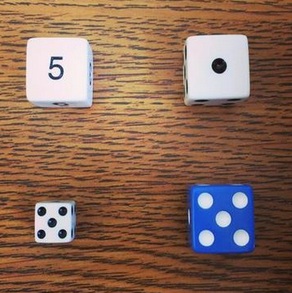
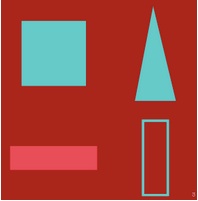
Which One Doesn’t Belong? (WODB) is an activity in which students look at a group of 4 pictures and identify similarities and differences. Your students might start by simply noticing whatever strikes them about the pictures. Then you might ask them to identify one picture that is special or different from the other three.
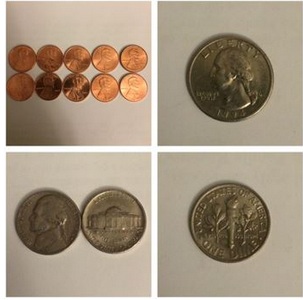
Because a sensible argument can be made for all of the options, rich mathematical discussion is possible. Many of the resources can be used at multiple math and language levels, making this resource perfect for students with limited literacy and groups of students with multiple levels of math proficiency.
Students might write about their argument. They might discuss their thoughts out loud or respond to each other’s ideas in writing. Teachers may want to consider offering sentence frames for discussion.
The initial task, of examining the pictures and identifying which is different, requires no literacy. This is a beautiful and exciting thing.
Students, even those who perhaps don’t identify as strong math students, will come up with creative, thoughtful analysis of the pictures, sometimes opening a very natural opportunity to introduce math vocabulary or further discuss a math concept.
WODB is a low floor, high ceiling task: these are tasks most students can access and that some students may take to high levels. It can be a game changer for a student to be able to immediately, meaningfully participate in the discussion. The website Nrich describes the power of this type of task in this way: “When the ceiling is raised it can be surprising what heights learners can achieve.”
I recently heard Sara Van Der Werf, president of the Minnesota Council of Teachers of Mathematics (MCTM), explain how she uses student discussion of engaging images to introduce new to topics in her math classroom. When it’s time for students to review math topics they have learned, she uses the same strategy: students discuss the concepts present in a variety of images. WODB sets lend themselves to this strategy.
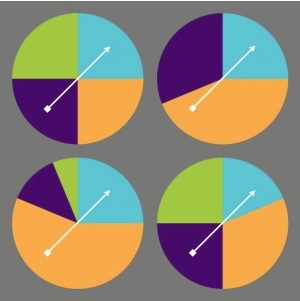
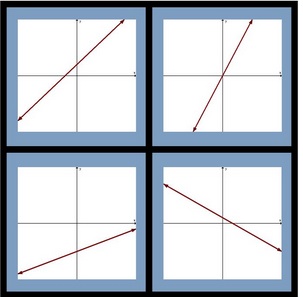
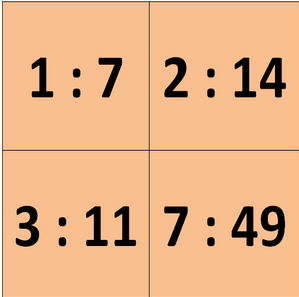
WODB is also a great base for evidence-based writing. As my GED students they prepare, these images offer opportunities to create arguments and support them with evidence. Writing about these images has been a great scaffolded step toward the writing expected of them on the GED.
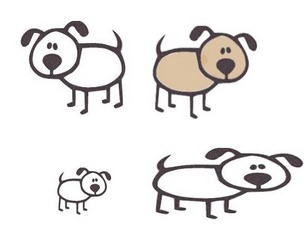
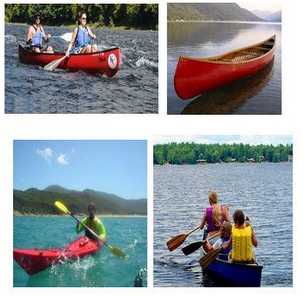
Many teachers have created great sets for Which One Doesn’t Belong. You’ll find many examples on the WODB website: wodb.ca From early numeracy to advanced algebra, you’ll find sets that align with the content you are teaching.
ATLAS recently posted a library of Numeracy Resources where you will find Which One Doesn’t Belong and other engaging Low Floor-High Ceiling tasks among many, many other great resources for teaching math (and we’re still adding more!). Whether you are looking for an instructional idea for tomorrow’s lesson, a resource to help you better understand certain math content, or information about the math content standards, you will find a wealth of helpful resources that are worth a look.
Originally published 2/22/16
Newsletter Signup
Get MN ABE Connect—the official source for ABE events, activities, and resources!
Sign UpArticle Categories
- ABE Foundations/Staff Onboarding
- ACES/Transitions
- Adult Career Pathways
- Assessment
- CCR Standards
- Citizenship
- COVID-19
- Cultural Competency
- Digital Literacy/Northstar
- Disabilities
- Distance Learning/Education
- ELA
- Equity/Inclusion
- ESL
- HSE/Adult Diploma
- Listening
- Math/Numeracy
- Mental Health
- Minnesota ABE
- One-Room Schoolhouse/Multilevel
- Professional Development
- Program Management
- Reading
- Remote Instruction
- Science
- Social Studies
- Speaking/Conversation
- Support Services
- Teaching Strategies
- Technology
- Uncategorized
- Volunteers/Tutors
- Writing